Absolutely. Kesler Science accepts purchase orders and will gladly work with your school through this process.
The first step is to request a quote to present to your administration.
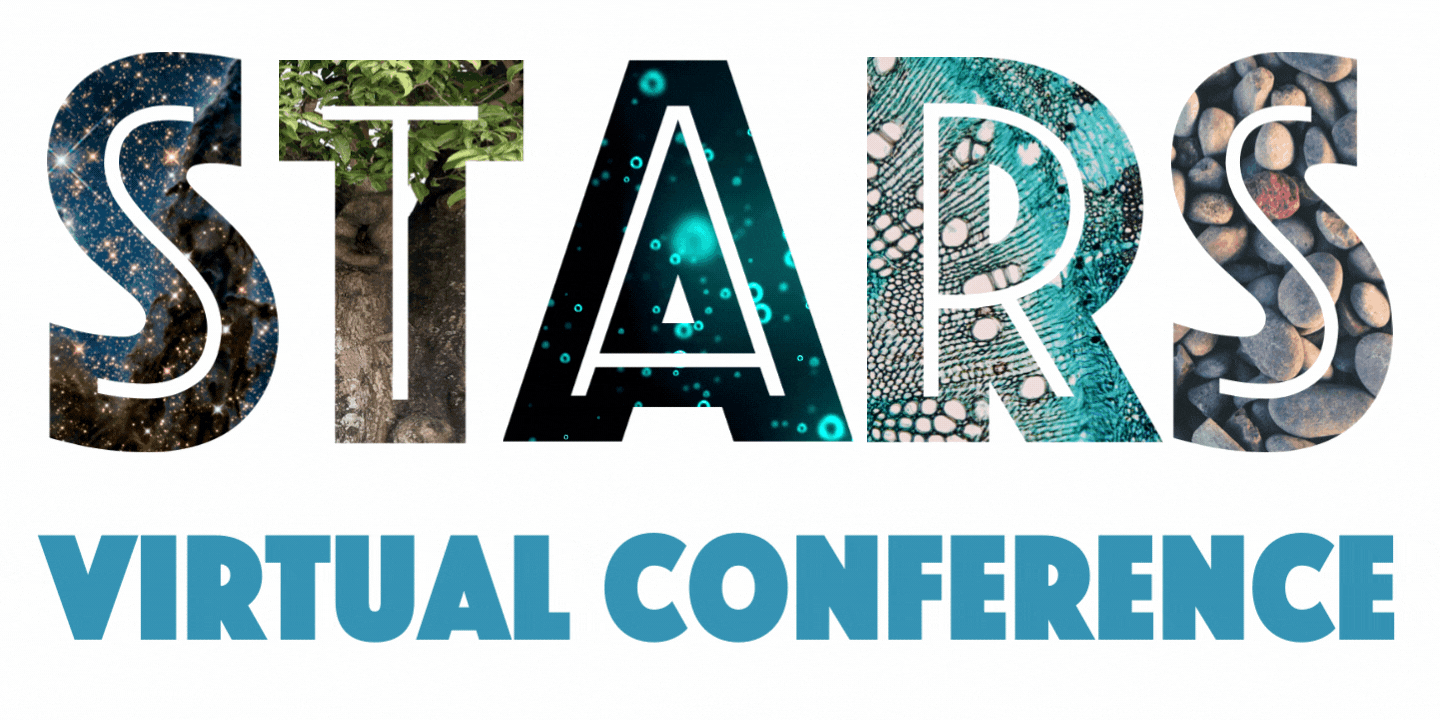
Presented by Kesler Science
Steve Spangler is a best-selling author, educator, and Emmy award-winning science communicator who finds the most creative ways to make science fun. His videos featured on YouTube, Facebook, Instagram, and now TikTok have over 1 billion views, but he may be best known for teaching millions of people how to turn an ordinary bottle of Diet Coke and a roll of Mentos into an erupting geyser of fun.
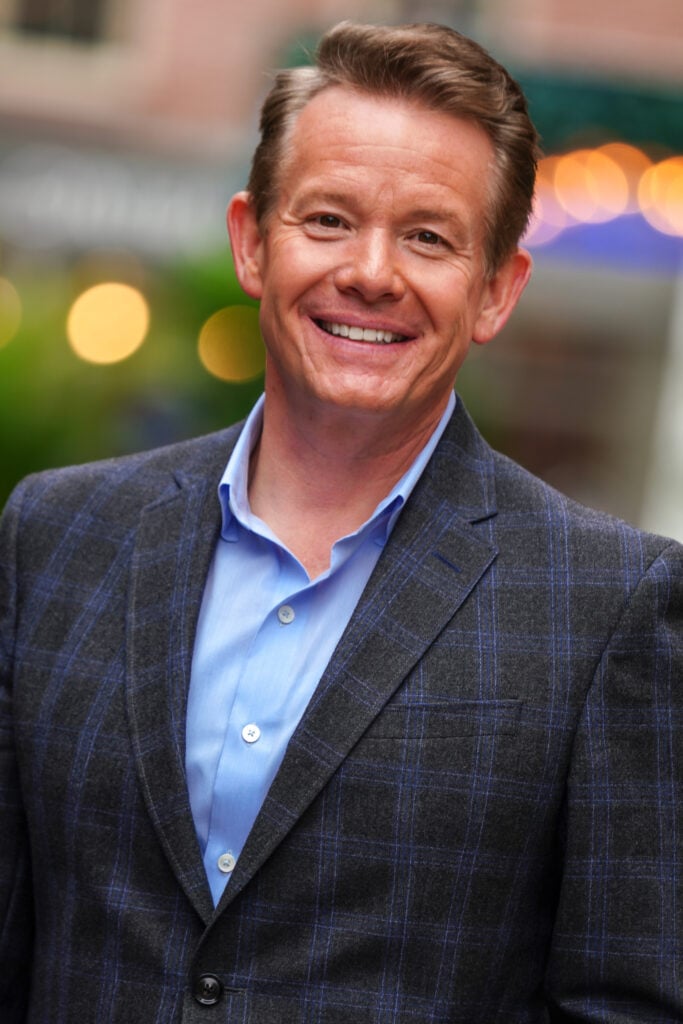
Steve is a popular keynote speaker at education conferences around the globe. His professional development workshops focus on best practices and instructional strategies to increase student engagement through phenomenon-based learning.
Steve’s nationally syndicated series called DIY Sci appears on FOX / CW affiliates as well as Amazon Prime. He’s also a frequent guest on the Ellen Show where he never fails to surprise and entertain both Ellen DeGeneres and the Burbank fire department. Ellen calls him… "the science teacher you always wanted to have in school… because the fire department shows up twice a year."
The STARS presenters represent a diverse group of experienced educators, authors, and scientists. They'll guide you through the challenges you face daily - everything from finding funding for materials, connecting with a wide range of learners, and incorporating the latest in science and technology.

This session fulfills the requirements for CPE credit in Texas.
This presentation focuses on student dropout, an issue that impacts more than just the student but their family, the community, and society. There is an overwhelming amount of research that explains the harsh realities of how school dropout negatively impacts students for the rest of their lives. Students who drop out report higher levels of unemployment, lower wages, and rely more on public health. With these factors in mind, it is clear why student dropout is a national concern.
Student dropout is a process of gradual disconnection that can begin as early as the 1st grade. A wide variety of variables have been found to correlate with school dropout, and identifying students as high risk has become a crucial topic in efforts to reduce the dropout rate. This presentation covers three main preventative indicators, known as the ABC’s of disengagement: attendance, behavior, and course performance.
Dr. Emmanuel Cherilien // Education Specialist (Ed.D.)
What is the difference between problem and project based learning? How can PBL be used within the science classroom as a formative or summative assessment? What benefits will my students receive from incorporating these into my classroom? Join me as I point out the major differences in PBL vs. PBL and provide you with student work samples. Learn how student choice can lead to valid assessment of student learning. Finally, learn how PBL can easily be incorporated into your own classroom
Have you ever wondered how to find, apply for and win grants for your science classroom? Is it a task that just seems daunting or impossible with your current workload? Whether private or public, there is money out there waiting for you! This presentation will share tips, tricks and how to spend just one weekend a year on grant writing. That's right, just two days a year is all you need to secure funds for hands on materials, field trips, and Kesler Science Membership fees! You will leave the session with an action plan, a list of valuable resources, and a firm understanding of the steps you need to take to make your first grants a success.
Covey Denton // K-8 STEM Specialist
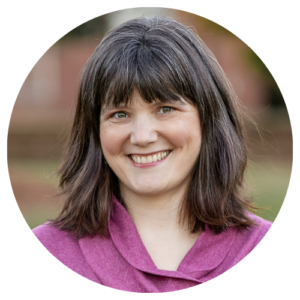

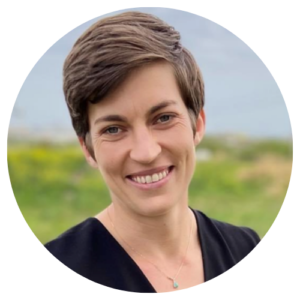
This session fulfills the requirements for CPE credit in Texas.
Learning science can feel like learning a new language, a feeling that can alienate, intimidate, or otherwise exclude some students from opportunities for deep learning. In this presentation, we share strategies teachers can start integrating into classrooms to better engage all learners tomorrow, in particular English Language Learners. Kent and Gina bring their experience as a language acquisition specialist and science teacher, respectively, to better reach EL learners in the science classroom.
The strategies presented here were designed and used by Gina and Kent in a science classroom in which over 90% of the learners are ELL. You will experience collaborative student talk strategies designed to get students using content vocabulary within the first 5 minutes of class and vocabulary games designed to increase accurate repetition of content vocabulary and to build confidence for all learners. Finally, we share tools to help increase student engagement with scientific texts in a jigsaw format. We designed this presentation to be as interactive as possible given the format, so we recommend you download a copy of the presentation to participate along with us as we explain how we use the tools in our classrooms.
Kent Dwyer // Education Admin
Gina Lappé // Secondary Science Teacher
This session fulfills the requirements for CPE credit in Texas.
Biodiversity describes all the different kinds of life you find in an environment - the variety of animals, plants, fungi, and microorganisms that make up our natural world. The scientists that study biodiversity want to know how much biodiversity is out there and what are the biological processes that lead to this amazing complexity. In this presentation, I will walk you through some of the ways scientists search for and describe new biodiversity and some of the ways in which we study how all of this complexity evolved. Specifically, I will focus on herbivorous insects and their host plants, which are one of the most diverse and species-rich groups of organisms on the planet. I will share stories of the discovery of new insect species and follow that with the description of three complimentary studies exploring insect biodiversity, including what factors predict when insects will move into new environments, what happens when they get there, and how the process of shifting to new environments and adapting to them promotes the evolution of new insect biodiversity. Collectively, you will see how biologists interested in the origin and maintenance of biodiversity address these questions across scales.
Dr. Scott P. Egan // Associate Professor, Department of Biosciences, Rice University

$1500
Schools and Districts can request a free quote for all STARS PD options.
REQUEST A QUOTE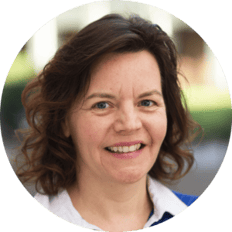
This session fulfills the requirements for CPE credit in Texas.
Distances here on Earth can be daunting to some, but the vastness of space can be difficult to comprehend for most. Throw in the intricate dance of the planets and moons in their orbits and there are bound to be some blank stares. In this talk, I will break down the size scales in the Solar System and expand the discussion to the full Universe. I will introducethe Earth –Moon system, its uniqueness, and explain the phenomenonand geometry of eclipses so that you can prepare your students for the upcoming 2024 total solar eclipse, which can be viewed across the United States. Additionally, I will provide you with relevant activities and resources that you can adapt for use in the classroom.
The solar system is filled with objects orbiting the Sun - the majority of which are very small compared to the eight planets - but these small objects hold the most informative and least altered clues to our system's history and formation. I will introduce some of our observing techniques, present some of the exciting small body science results revealed in the past decade, and emphasize the importance of these distant and seemingly insignificant bodies. I will also share some activities and resources that you can adapt for use in your classroom when teaching planetary science.
Dr. Lori Feaga // Associate Research Scientist
Treat yourself to a session of fast-paced learning. Grab your tablet and follow along. I will show you my favorite website, apps, and hacks. These are the places and things that make life - as a science teacher - so much easier. Whether you need a graphic, a gif, a game, or an idea, this is where the high-quality, no-cost material hides. Invest a little time now to save hours later. You'll be glad you did.
I'll start by sharing the 10 most useful tools for science classrooms, but we won't stop there. There are so many companies vying for your attention - and your money. How do you decide what's quality and what's fluff? I'll teach you my proven method to separate the good apps from the not-so-good.
Is the flipped classroom a tool, or is it hype? I've been flipping my classroom successfully for more than 14 years. My students' success is off the charts! Not only has it given me more time in class, but I've also been able to help millions of students around the world. You can too! It's our secret, but it's really not that hard to accomplish.
Nancy Foote // Math Interventions and Science Specialist
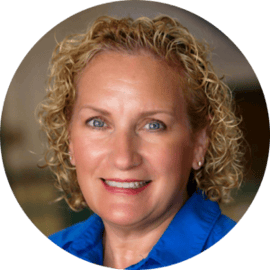
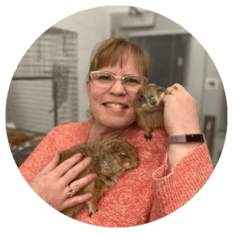
This session fulfills the requirements for CPE credit in Texas.
We have some pretty tough critics in our science classrooms—our students. Discover ways to tell your content story in meaningful ways with strategies to check for understanding, have students evaluate their own learning, and celebrate success. We can’t eliminate all rotten tomatoes, but we create content that is rated M for memorable.
Gina Lappé // Secondary Science Teacher
Have you ever thought of starting a garden at your school? Are you curious about hydroponic growing systems? This session will introduce both from a teacher with years of experience building a program and integrating it with class curriculum. Learn about the different types of hydroponic systems and the best to use based on your goals. See student driven projects based on gardening and valuable classroom management techniques to make a program work in your class. Finally a list of grant opportunities to fund your project will be given.
Dr. Scott P. Egan // Associate Professor, Department of Biosciences, Rice University
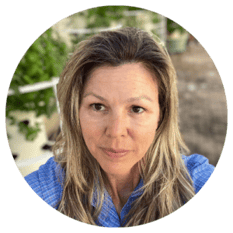

The Next Generation Science Standards (NGSS) and associated state Science standards call for teachers to favor depth over breadth while engaging students in “doing” science, not just learning science facts. This recommendation aligns with the recommendation of curriculum experts (e.g., Wiggins & McTighe, 2005, 2011; Erickson, 2008, 2017) that educators should move away from trying to cover volumes of factual material, and instead, prioritize their curriculum around a smaller number of conceptually larger, transferable ideas. Focusing on fewer, more significant ideas is critical to avoid superficial "coverage," while allowing more time to engage students in the kinds of active, meaning-making processes that are necessary for developing conceptual understandings. Moreover, by streamlining the curriculum content, teachers will have more opportunities to involve students in “doing” science by applying its Practices. In this Keynote address, Jay McTighe will: 1) explore ways of framing the curriculum in ways that honor the intentions of the Science Standards, and 2) highlight instructional practices that can engage students in deeper learning that lasts.
Jay McTighe // Educational Author and Consultant
Science instruction for early elementary students is often minimized, misunderstood, or just plain overlooked. In this presentation, I will share my experiences and knowledge gained as the instructor of a science lab designed specifically for PreK through 2nd grade students. These experiences provided enlightening insights as to the importance of starting science instruction early in order to nurture young children’s natural curiosity and wonder. In this session I will provide strategies and best practices on how to elevate the 5E model of instruction in order to spark a spirit of inquiry and empower learning in early elementary students.
Julie Neidhardt // National Board Certified Teacher
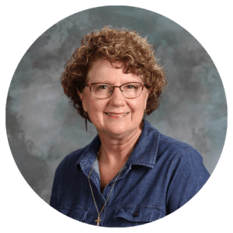
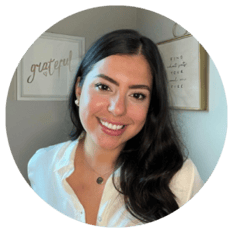
Augmented reality (AR) is the #edtech evolution of blending the real world with the imagination of technology. We continue to see AR grow in the way organizations market products. Analysts predict that the AR market will reach $297 billion in 2024. As technology evolves and grows in what we once thought were unimaginable ways, how can educators and families support the AR movement in education? In my presentation, you will leave with engaging and easy methods to bring AR into your classroom. You will bring your lessons to life and leave your admin and families of your students in awe!
Ysabel Ortiz, M. Ed. // K-8 STEAM Integrator at North Broward Preparatory
This session fulfills the requirements for CPE credit in Texas.
Do wish to have a classroom where students think critically and creatively, participate enthusiastically, and are capable of working independently? Join me to learn research-based strategies that help foster self-regulation in the science classroom. Find out how to teach and use twelve core metacognitive skills in your classroom instruction to help students plan, monitor, and evaluate their learning. Increase student engagement, problem-solving, and participation with hands-on activities that are easy to implement. You will come away from this session with twelve core strategies and a variety of ready-to-use ideas with free templates. Teachers will leave with a "tool kit" they can use with students across grade levels and in many different subject areas.
Nina Parrish // Co-founder and Chief Academic Officer of Parrish Learning Zone

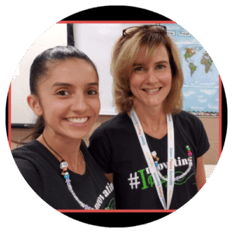
Young children are natural explorers of the world around them. They come to the classroom with wonder, curiosity, and prior knowledge based on the schema they began developing in the first years of their lives. In this presentation two kindergarten teachers, from opposite sides of the United States, share how they reimagine the typical routine for scientific inquiry that focuses on investigating daily weather conditions in order to make connections to patterns and seasonal changes over time.
Participants will explore weather reporting routines over the course of the school year to learn about set-up and development, engagement opportunities, and highlight opportunities for discovery. Consideration is given to the ways that this approach reflects the Next Generation Science Standards, alongside the best practices outlined in the joint position statement from the National Association for the Education of Young Children and the Fred Rogers Center for Early Learning. Educators will discover the ways that this practice addresses key components for meaningful use of technology as a learning tool with young students.
Participants will learn the specifics of how to: capture the weather through daily video weather reports, record and analyze single or multiple sets of data by graphing in Google Sheets, extend learning to include families as part of the discovery and sharing process beyond the classroom, and develop collaborative hands-on outdoor investigations. This presentation is meant to support educators in rethinking traditional routines in order to create a more joyful and meaningful experience that scaffolds scientific thinking for young learners.
Christine Pinto // Early Childhood Education
Jessica Twomey // Early Childhood Education
Despite the myth of “digital natives,” most of my students have very little experience using technology as anything more than a consumer device. It doesn’t have to be this way. By using design thinking in STEM / STEAM lessons, teachers can help students develop a maker mindset while also learning the content at a deeper level. Design thinking is a flexible framework for getting the most out of the creative process. It’s used in the arts, in engineering, and in civic spaces. As educators, we can use design thinking to help our students reach their creative potential as they master the standards and develop the vital lifelong skills of empathy, collaboration, research, ideation, and iterative thinking.
Collaboration can be challenging in the classroom. Often, one member does all the work while others hang back and watch. In this session, we explore how to improve collaboration by designing for student ownership, interdependence, trust, and structure. We'll walk through specific, practical strategies you can use in the middle school science classroom to make collaboration work.
Dr. John Spencer // Author, Speaker
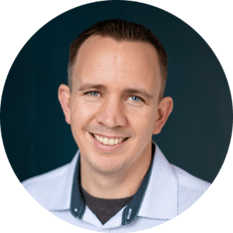
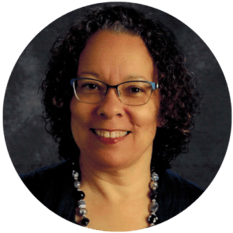
Our current understanding of restorative justice practices comes from the justice practices of indigenous people the world over. In these cultures, community is viewed as interconnected, and creating well-being means keeping the connections intact. Communities that operate restoratively choose systems that create and maintain meaningful relationships. They repair them when they are damaged, rather than focusing on the damage or using it as a reason to separate people from each other.
Many restorative practices operate through communication within circles. This session looks at the benefits and opportunities of using restorative circles - from welcoming into classrooms to handling inevitable wrongdoing - and how to use them to build meaningful relationships in schools.
PJ Stewart // Restorative Justice Facilitator/Mentor
Does it seem like you’re always working, and yet it never feels like you’ve done enough? In this session, Angela Watson shares simple mindset shifts that will empower you to do fewer things, better. Learn 5 questions to ask yourself when deciding what to add, streamline, or eliminate to create more space in your day for innovative teaching strategies. Discover actionable ideas for analyzing and letting go of practices that aren’t the best and highest use of your time. You’ll walk away from the session knowing how to set clear, realistic goals for your learning at the conference so you can conquer overwhelm and focus on the right priorities for YOU!
Let's counter the false "lost year of learning" narrative and find a more strengths-based, empowering perspective on the challenges ahead. Learn how to focus on what's most impactful with students and streamline the rest. You'll walk away with new clarity about priorities, which will give you confidence in your teaching practice and empower you to set boundaries for better work/life balance.
Angela Watson // Author and Founder, TruthForTeachers.com
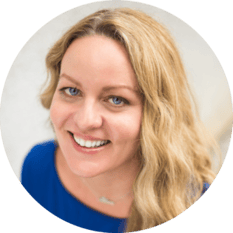
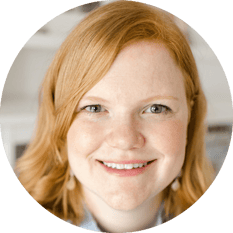
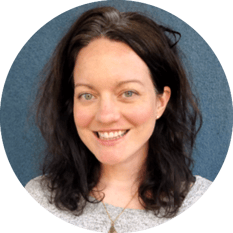
This session fulfills the requirements for CPE credit in Texas.
“Why does this matter?” “Why should we care?” As science learning becomes more advanced, students can start to wonder how the time spent in the classroom is meaningful to them. Bringing diverse and modern role models who work in STEM and are solving real-world problems like plastic pollution, effective vaccines, or fast fashion is one strategy to answer these “Why” questions. How do you find role models that are relevant to classroom learning and who reflect the cultural diversity of our communities? Science Delivered and STEM Superheroes™ will share ideas, resources, and role models to connect your classroom lessons to STEM careers.
Erin Twamley // Author
Dr. Olivia Mullins // Founder, Science Delivered
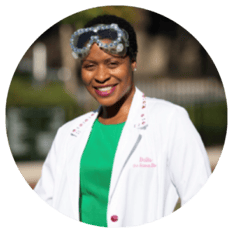
This session fulfills the requirements for CPE credit in Texas.
Providing students with phenomena that bring their learning to life can be easily achieved with the help of teachers’ pets. Options are varied when it comes to keeping living things in the classroom. Choosing an animal that meets your comfort level, time availability, and budget allowance are highly recommended. However, once the decision is made, students can play integral parts in their care and discovery. The ideas and opinions in this presentation come from first-hand experience from a middle school science teacher who has always kept life in the classroom. Dallis Whitley has been teaching science for 18 years and has never stepped foot into a classroom without one of her favorite students. She will share with you the joys and pains that come with keeping pets in the classroom while reflecting on its role as an integral way to push teaching and learning forward. Organisms to consider include; Madagascar hissing cockroaches, tarantulas, tree frogs, leopard geckos, guinea pigs, and moss balls. Each living thing will be shown in the presentation, along with tips on how to handle their care amongst students. Most students welcome the experience and will take pride in the organisms that accompany their journey in the classroom. The discussion touches on the blending of these special students into the curriculum, social-emotional learning, after-school clubs, and the overall classroom environment.
Dallis Whitley // Science Teacher Coach




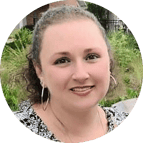


Absolutely. Kesler Science accepts purchase orders and will gladly work with your school through this process.
The first step is to request a quote to present to your administration.
Yes. Click here to request a quote.
The STARS New Teacher Orientation is 100% on-demand and can be watched at your convenience. Upgrade to the STARS Ultimate PD for five hours of LIVE Zoom sessions!
All of the conference recordings will be available to watch for 365 days after purchase.
The Kesler Science STARS Conference is now an official provider of Texas CPE hours. Sessions that meet the requirements for CPE hours are labeled above.
Video playback is supported by all modern browsers including, Chrome, Firefox, Safari and Edge. Videos can also be played on most modern day smart phones and tables.
The videos are hosted on our server and are viewed within a browser.
Click here to learn more about our amazing speakers, authors, scientists, and teachers.
Kesler Science materials are used by tens of thousands of teachers across the country. Click here to learn more.
$1500
Schools and Districts can request a free quote for all STARS PD options.
REQUEST A QUOTE
Copyright by Kesler Science 2023 - All Rights Reserved. Terms and Conditions